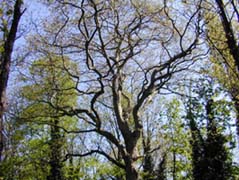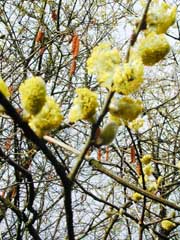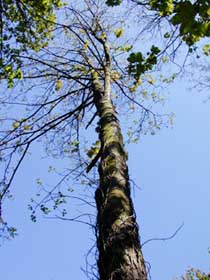
Life and Work

Thomas Traherne was born in 1637 in Hereford, England and died in 1674 in Teddington. He was the son of a shoemaker, educated at Oxford and was ordained in 1660. From 1669 to his death he served as chaplain to Sir Orlando Bridgeman, and published only one work in his lifetime, Roman Forgeries. The works for which he is now famous, his poetry and the prose including Centuries of Meditations, were discovered over a period lasting from 1896 to 1967. The unique nature of his thought and its much later discovery in an essentially secular age means that Traherne has had no impact on the spiritual life of the West, but is all the more deserving of study.
F.C.Happold, author of the Penguin anthology Mysticism (1962), writes of Traherne: "Though Thomas Traherne cannot be numbered among the great mystics, he demands a place in any anthology of mysticism. Nowhere else does one find a similar fusion of nature-mysticism and Christo-mysticism as exquisitely balanced, so that both are essential parts of his consciousness, neither being complete without the other." This is a good summary of Traherne though he will be discussed again in the 'lost Buddhas of the West' section, where the extraordinary resonance between his unique and personal vocabulary and that of Buddhism will be drawn out in more detail.
For the same reason as with Whitman, Traherne cannot be called a pure Nature Mystic because his vision is all-encompassing, in other words it includes the world of men as well as of Nature, and the inner world as much as the outer. However his ecstatic via positiva does encompass the natural world and gives us pointers to a more complete understanding of Nature Mysticism.
Early in the First Century of Meditations Traherne writes:
I will open my mouth in parables: I will utter things that have been kept secret from the foundations of the world. Things strange, yet common; incredible, yet known; most high, yet plain; infinitely profitable, but not esteemed. Is it not a great thing, that you should be heir of the world? (p.187 of Selected Poems and Prose, Penguin, from which all the following extracts are taken)
Traherne introduces us here to one of his great themes, that we are inheritors of the world, even more that we somehow 'own' it in its entirety, more surely than owners of property are legally entitled to whatever small share of the universe that conventional inheritance or acquisition has brought them. It is a theme that Douglas Harding often returns to, and in fact he often alludes to Traherne in his writings. (The association between the two men has been immortalised in a song by the 70's British popular group The Incredible String Band called 'Douglas Traherne Harding'.)
Traherne is a Christian, and unlike Whitman and Jefferies, adheres to his tradition, though in a form that few Christians would recognise. His radical point of departure is that the greatness of God is found in his 'work,' that is in the creation. He puts it like this, with italics for emphasis: "The end for which you were created is that by prizing all that God hath done, you may enjoy yourself and Him in blessedness." (p. 190) He also says "That all the world is yours, your very senses and the inclinations of your mind declare." (p.191) Traherne also praises the body and its senses, as do Whitman and Jefferies, and is hence at odds with the Gnostic and Manichaean influence in Christianity which saw the material world as corrupt. Yet in his own way Traherne shuns the 'world's distempered mind' and had a lively sense of the sin and corruption that were to be set aside before the world and God could be claimed as one's own.
Traherne hints of himself as teacher in the introduction to Centuries, and in 'Mankind is sick' talks of the physician healing the sickness, the 'sad distemper of the mind'. We know so little of his life that we cannot tell whether he worked in a way recognisable to us as a spiritual Master, and had disciples. His teachings are clear however and could be summed up in the phrase 'the infant eye', which capacity he encourages us to develop, and the word 'felicity' which is the natural state of one who possesses the infant eye.
When it comes to Nature, Traherne presents us with few descriptive passages, prefering more sweeping statements such as 'The world is a mirror of infinite beauty, yet no man sees it.' (p.198). Yet here and there are more detailed accounts of Nature, such as in this extract from the Third Century which also encapsulates many of Traherne's common themes:
The corn was orient and immortal wheat, which never should be reaped, nor was ever sown. I thought it had stood from everlasting to everlasting. The dust and stones of the street were as precious as gold. The gates were at first the end of the world, the green trees when I saw them first through one of the gates transported and ravished me; their sweetness and unusual beauty made my heart to leap, and almost mad with ecstasy, they were such strange and wonderful things. The men! O what venerable and reverend creatures did the aged seem! Immortal cherubims! And the young men glittering and sparkling angels and maids strange seraphic pieces of life and beauty! Boys and girls tumbling in the streets, and playing, were moving jewels. I knew not that they were born or should die. But all things abided eternally as they were in their proper places. Eternity was manifest in the light of the day, and something infinite behind everything appeared: which talked with my expectation and moved my desire. The city seemed to stand in Eden, or to be built in Heaven. The streets were mine, the temple was mine, the people were mine, their clothes and gold and silver was mine, as much their sparkling eyes, fair skins, and ruddy faces. The skies were mine, and so were the sun and moon and stars, and all the world was mine, and I the only specatator and enjoyer of it. I knew no churlish proprieties, nor bounds nor divisions; but all proprieties and divisions were mine: all treasures and the possessors of them. So that with much ado I was corrupted; and made to learn the dirty devices of this world. Which I now unlearn, and become as it were a little child again, that I may enter into the Kingdom of God. (p. 226-227)
In the last part of this extract Traherne quickly recapitulates his 'fall' and 'salvation'; the inevitable corruption within which he is alienated from the vision of his childhood, and the 'unlearning' of the ways of the world so that, childlike, he reclaims his expansive vision. Douglas Harding's account of this process parallels Traherne's version and puts it on a perceptual footing that is more suited to the modern age. But we are focusing on Nature here, and we note Traherne's description above of corn, trees, and the skies. We find the same treated again in these stanzas from Poems of Felicity:
4
For so when first I in the summer-fields
Saw golden corn
The earth adorn
(This day that sight its pleasure yields),
No rubies could more take mine eye;
Nor pearls of price,
By man's device
Set in enamel'd gold most curiously,
More costly seem to me,
How rich so e'er they be
By men esteem'd; nor could these more be mine
That on my finger shine.
5
The skies above so sweetly then did smile,
Their curtains spread
Above my head
And with its height mine eye beguile;
So lovely did the distant green
That fring'd the field
Appear, and yield
Such pleasant prospects to be seen
From neighbouring hills; no precious stone,
Or crown, or royal throne,
Which do bedeck the richest Indian lord,
Could such delight afford.
6
The sun, that gilded all the bordering woods,
Shone from the sky
To beautify
My earthly and my heavenly goods;
Exalted in his throne on high,
He shed his beams
In golden streams
That did illustrate the sky;
Those floods of light which he displays,
Did fill the glittering ways,
While that unsufferable piercing eye
The ground did glorify.
('The World' p. 89-90)

In the following extract from 'Walking' Traherne has commented on men that move like 'statues dead' who neither see nor love, and quite miss the beauty of Nature:
6
To fly abroad like active bees,
Among the hedges and the trees,
To cull the dew that lies
On every blade,
From every blossom; till we lade
Our minds, as they their thighs.
7
Observe those rich and glorious things,
The rivers, meadows, woods, and springs,
The fructifying sun;
To note from far
The rising of each twinkling star
For us his race is run.
8
A little child these well perceives,
Who, tumbling among grass and leaves,
May rich as kings be thought;
But there's a sight
Which perfect manhood may delight,
To which we shall be brought.
9
While in those pleasant paths we talk
'Tis that toward which at last we walk;
But that we may by degrees
Wisely proceed
Pleasures of love and praise to heed,
From viewing herbs and trees.
(p. 136-137)
Traherne presents us here with an analogy with bees, and suggests that we can cull the beauty of Nature for our minds as they do 'nectar on their thighs'. He introduces the child again, but finishes by pointing out that Nature takes one in 'perfect manhood', by degrees, to something higher, not clearly spelled out but to do with love.
As these extracts show, Traherne is not particularly interested in the detail or workings of Nature's abundance, the kind that we might find in the 19th century writers such as Jefferies, Thoreau, Muir, Burroughs or Whitman. What he does contribute to our understanding of Nature Mysticism must surely lie in his conviction, firstly that we are blessed through our senses with the enjoyment of the natural world, and secondly that in a deeply intimate way we 'own' it. References to the infinite and the eternal are found in abundance in his Meditations, but Nature is not the primary route to them, as with Jefferies and Krishnamurti, but more a stage within which to express enjoyment of the senses as a right or even a duty to the Creator. This last passage repeats some of these themes in inimicable Traherne fashion:
By the very right of your senses you enjoy the world. Is not the beauty of the hemisphere present to your eye? Doth not the glory of the sun pay tribute to your sight? Is not the vision of the world an amiable thing? Do not the stars shed influences to perfect the air? Is not that a marvellous body to breathe in? To visit the lungs: repair the spirits: revive the senses: cool the blood: fill the empty spaces between the earth and heavens; and yet give liberty to all objects? Prize these first: and you shall enjoy the residue. (p. 194)
